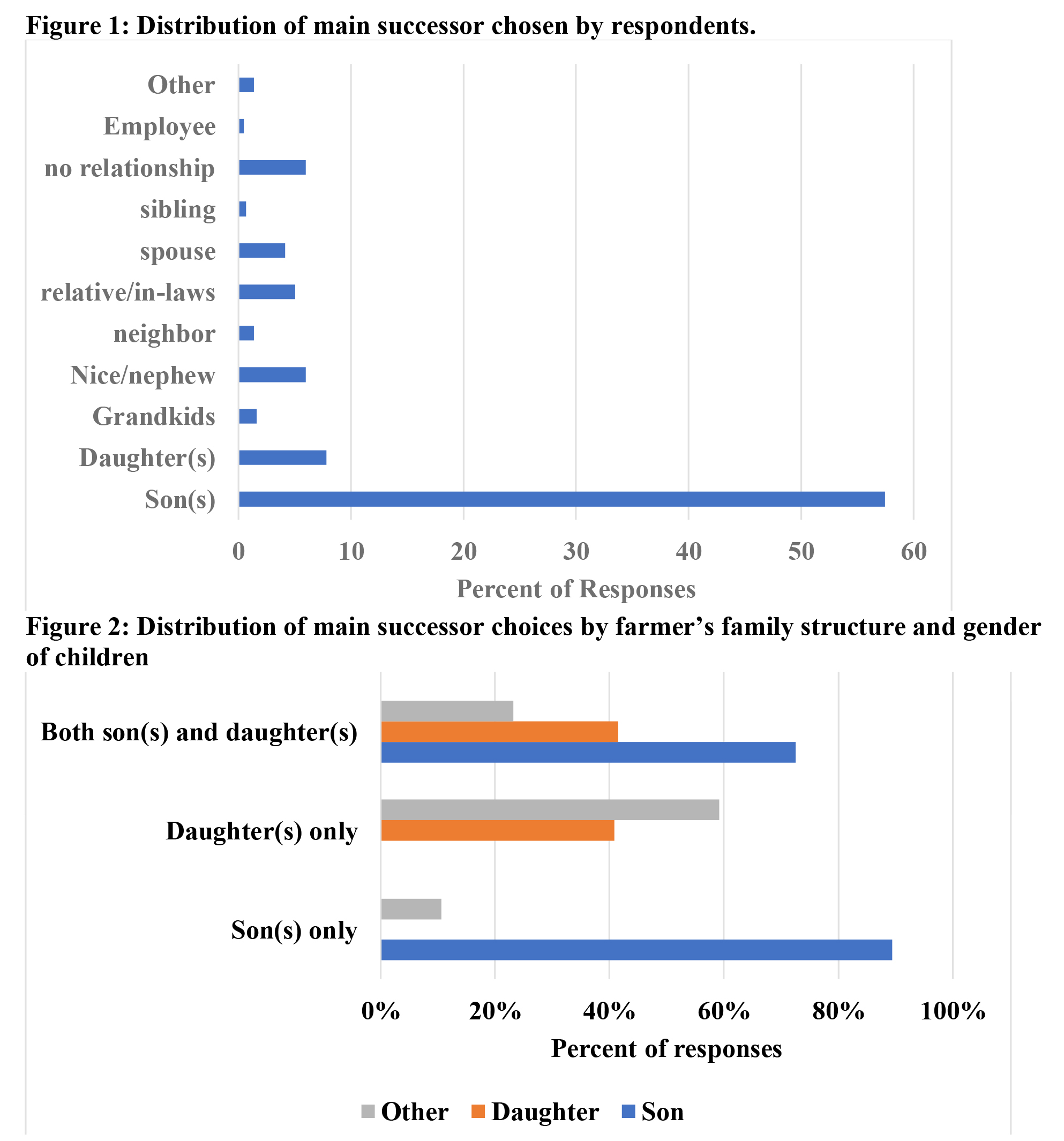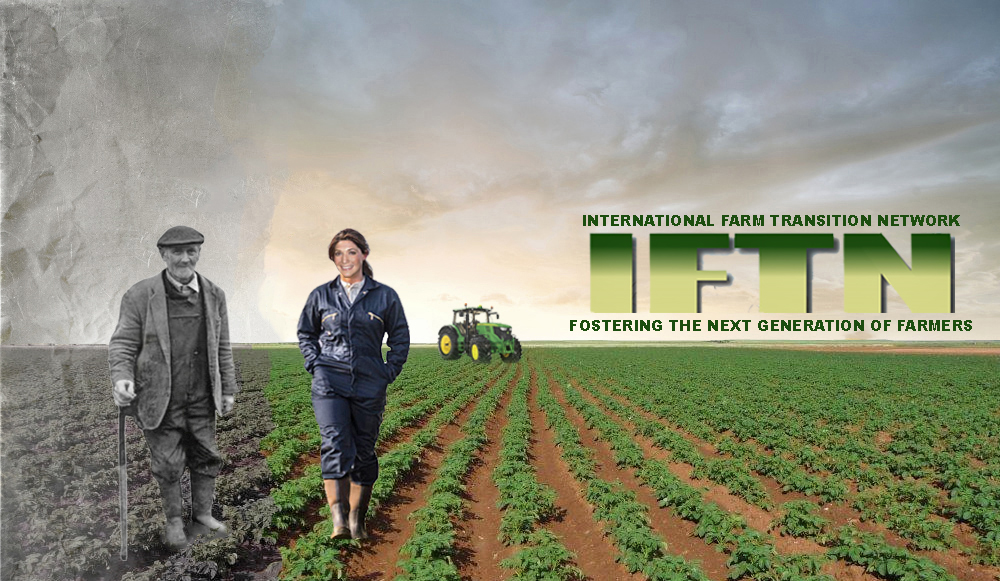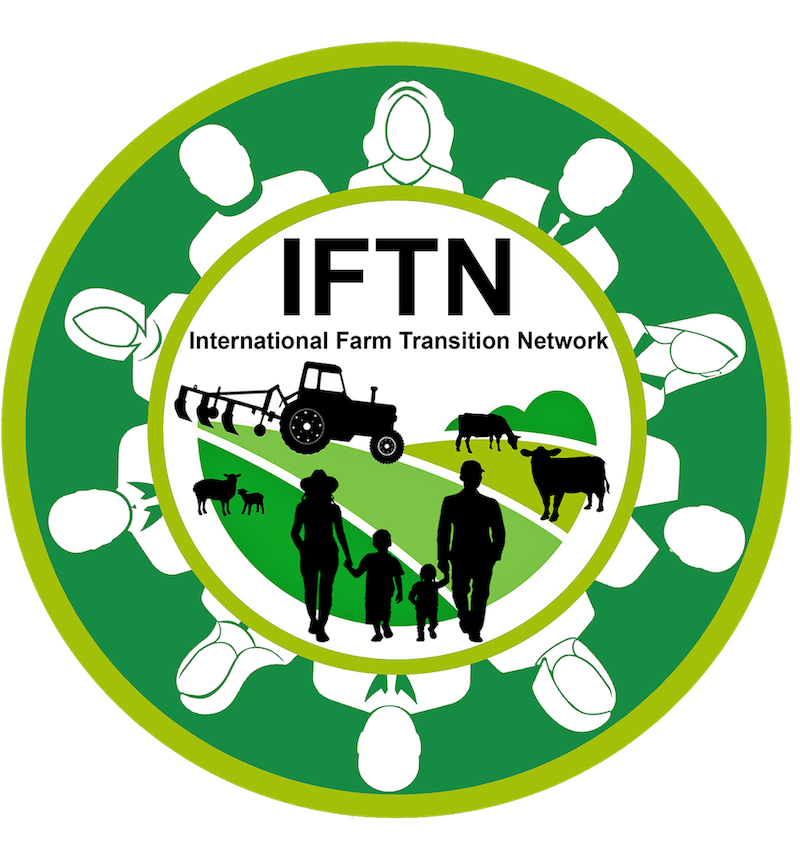How Gender Affects Successions and Transfers of Iowa Farms
By Beatrice Maule, Iowa State University
Co-authored by Dr. Wendong Zhang and Dr. Qing Liu, Iowa State University, United States.
Traditionally, farmers have been depicted as men, and for centuries farms have been passed from father to son. However, times have changed, and, according to the US Census of Agriculture, 29% of principal operators are women, and 37% of land is owned by women. However, the 2014 USDA TOTAL survey shows that the majority of land owned by women is managed by a male tenant, who makes the majority of decisions about the land and is often “inherited” with the land itself. Gender imbalance in Agriculture is still widely present and hard to tackle, and women face greater barriers to entry. The main results of our research confirm a huge gender gap between males and females: 73% of farmers who have both sons and daughters have chosen their son as the main successor. So why are women still excluded from inheriting the land of their fathers?
We found that an older farmer is less likely to choose a woman as their man successor, which means that they are more likely follow a “we’ve always done it that way”, more traditional approach. Consequently, it is expected that a farmer who has a son as the oldest child will give most, if not all, the land to him. The empirical data of our research confirms this expectation and shows more surprising factors. We found that the farm condition and the year in which the farm has been established also influence the decision. We expected that a farm considered in good or excellent condition would be positively related to choosing both sons and daughters. However, while a son is more likely to inherit a farm in good conditions, the relationship with choosing a daughter is actually negative, meaning that the majority of well-functioning farms will be given to a son. This can be explained by the disparately higher investment in sons than in daughters when it comes to farm education and perceived productivity, which see women in disadvantage. The year in which the farm was established is also a factor influencing the choice of the successor: since many farmers take great pride in owning a multi-generational family farm, they would rather not give it to their daughter which will eventually take her husband’s last name. These last two results can be summed up as: if the family puts higher value on their land, then they prefer for it to stay under the family name.
However, we also found factors that positively influence the probability of choosing a daughter and that give room for policy intervention. We found that a farmer who has a college education, is in a partnership with his wife and/or is female, is more likely to pass the land to their daughter; these farmers are exposed to more female leadership in the farm and are more accustomed to breaking traditional norms. If the daughter works in the farm or has an agriculture-related job, then she is seen as more capable to care for the farm and is more likely to get the land. Education targeting male farmers and women landowners about their choices, together with a generation turnover, could help close the huge gender gap in agriculture.

Author Biography
 Beatrice Maule is a Junior at Iowa State University majoring in Agricultural Business, Economics and International Agriculture. She has been working with Dr. Wendong Zhang in several studies including the Land Value Survey. She is currently focusing her research on Farm transfer plans, with special attention to women farmers and successors. Beatrice was born in Vicenza, Italy and grew up in a centuries-old, family-owned grapevine farm. She moved to Iowa in 2019 to continue her education and plans to pursue a higher degree upon graduation. Beatrice is also a proud member of Pi Beta Phi Fraternity for Women.
Beatrice Maule is a Junior at Iowa State University majoring in Agricultural Business, Economics and International Agriculture. She has been working with Dr. Wendong Zhang in several studies including the Land Value Survey. She is currently focusing her research on Farm transfer plans, with special attention to women farmers and successors. Beatrice was born in Vicenza, Italy and grew up in a centuries-old, family-owned grapevine farm. She moved to Iowa in 2019 to continue her education and plans to pursue a higher degree upon graduation. Beatrice is also a proud member of Pi Beta Phi Fraternity for Women.
Email: beamaule@iastate.edu
LinkedIn Profile

